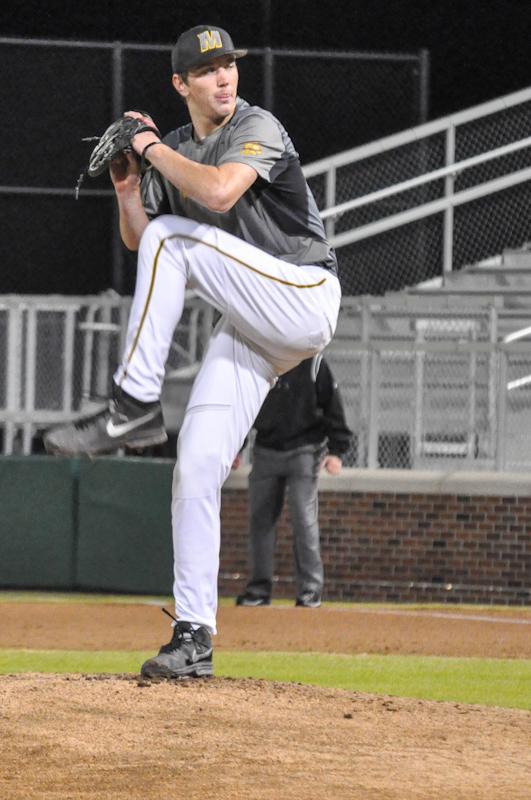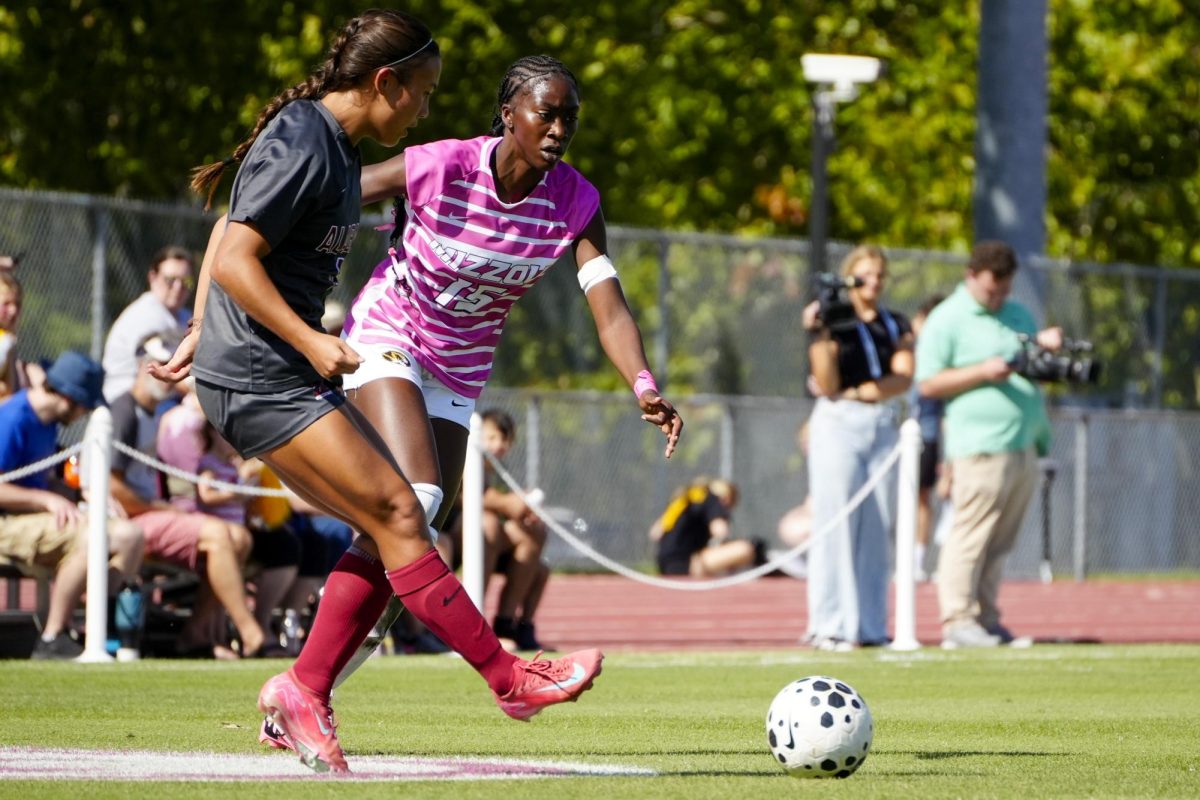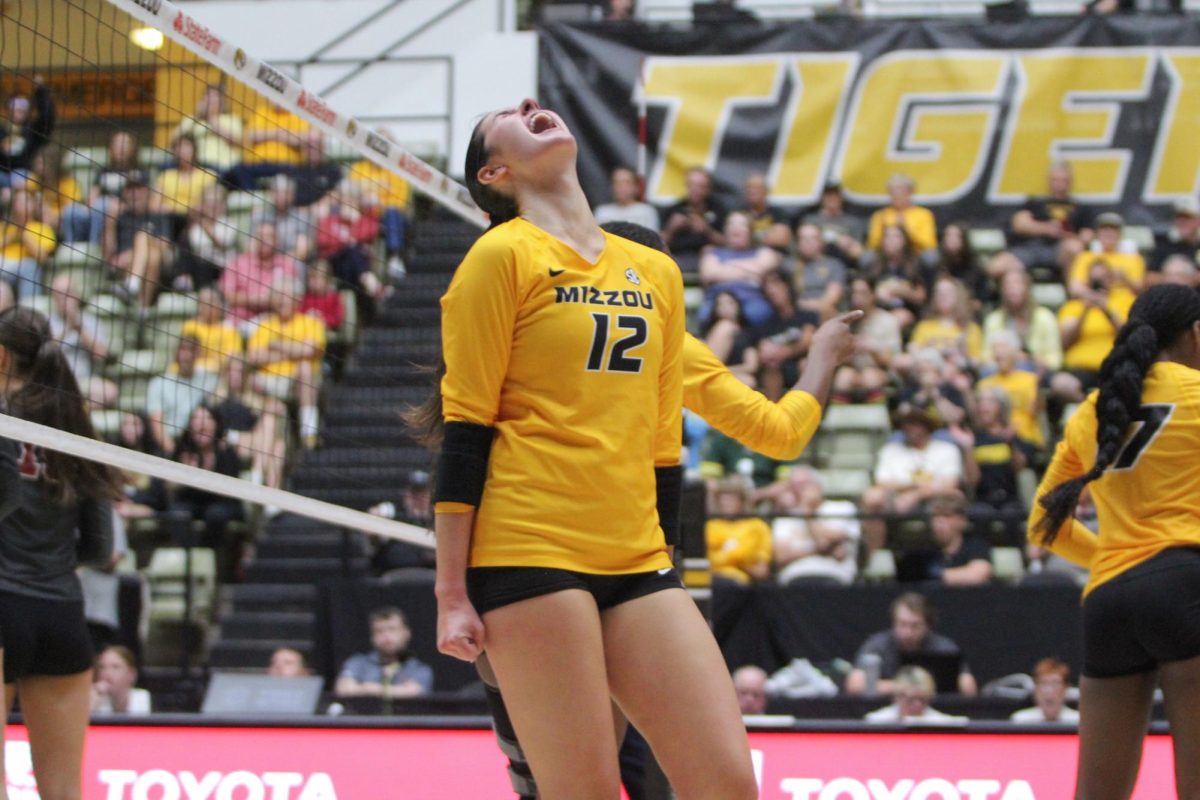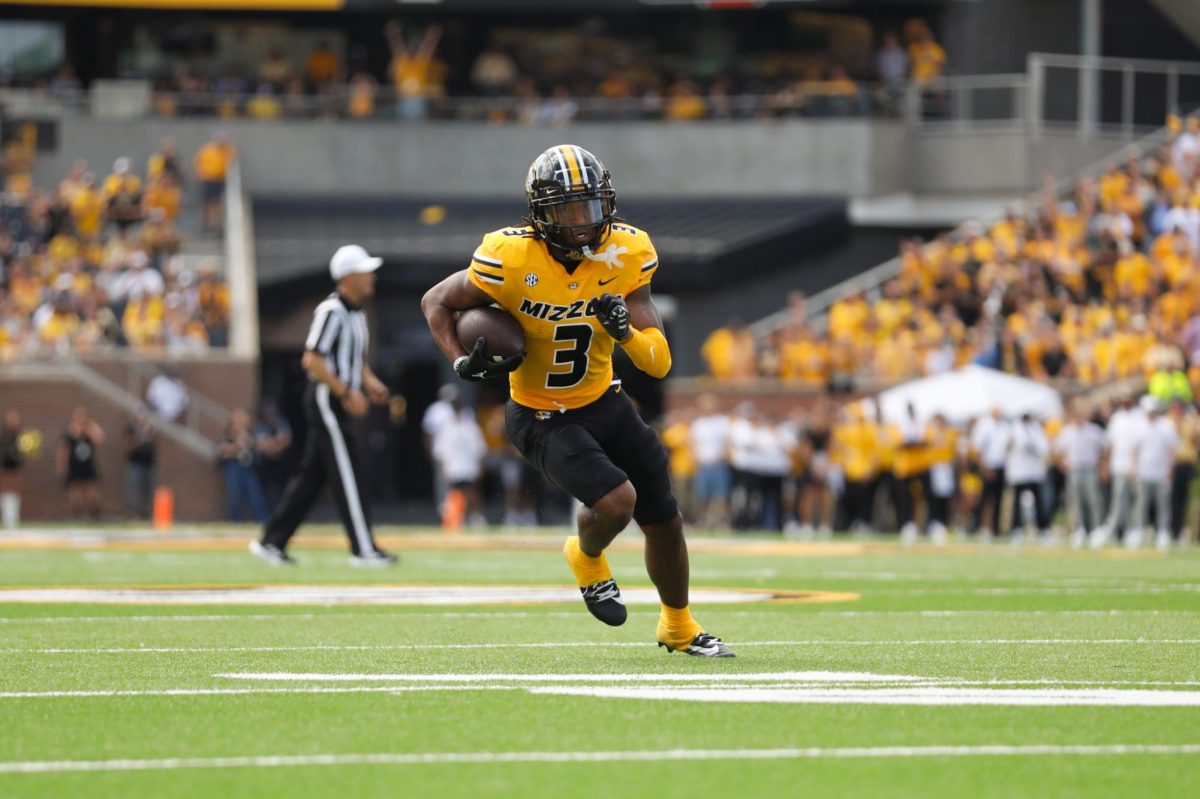Four hundred and fifteen feet is a long, long way to throw a baseball.
If you were to stand at the south end zone of Faurot Field and chuck it that far, it would sail through the goal post and land at the foot of the rock “M”.
It’s a feat that sounds downright mythical, but Alec Rash did it while long-tossing with his father one night at his high school, throwing the ball from home plate of the baseball field over the backstop of the next field and a good way up the third base line.
“Yeah, that’s a true story,” he said. “It’s kind of a one-time deal. I’ve never been able to do it again, but that day, I guess my arm just felt great.”
Rash and his father, Mike, determined how fast he had thrown the ball for it to go that far and wound up with an estimate of 107 mph.
“And that’s when I knew that this kid was a freak,” Mike Rash said.
“Freaks” are valued in Major League Baseball, a fact evidenced by the strong consideration and close attention Alec Rash received from teams as June’s First-Year Player Draft neared. Big money was in the cards for him.
However, his sights were still set on Missouri, a team that had recruited him since the early days of his high school career. Though neither choice was bad, Alec Rash faced a decision approaching draft time: take the money and go pro, or go to school and join the college ranks as one of the nation’s most highly touted recruits.
Alec Rash has always been an athlete. He excelled in three sports in high school at Adel Desoto Minburn High in Iowa and Pelham High in Alabama. Scouting reports about him fawn over his athleticism.
Mike Rash said that as a child, Alec Rash thought he was going to go to Iowa State to play basketball. He only played high school football the fall of his senior year, but his size and athletic ability made him a valuable asset at wide receiver. Video of him playing basketball shows a dynamic swingman catching alley-oops and blocking shots.
But, as Mike Rash puts it, “baseball kind of picked him.” Alec Rash’s prodigious arm strength was apparent early on. Mitch Krumwiede, his baseball coach at ADM who was also Alec Rash’s physical education teacher in sixth grade, said he saw it when the class would play dodgeball.
“The kid had an arm that was head and shoulders above everybody else,” Krumwiede said. “It wasn’t even close.”
Mike Rash had his son on a long-toss regimen from an early age and later began to take cues from Alan Jaeger, a trainer who has worked with multiple MLB pitchers.
One late afternoon throwing session sticks out in Mike’s mind as another testament to his son’s throwing ability. After a barbecue at the family’s house, Alec Rash and his father went to an adjacent hayfield to long toss, with a few other people following to watch.
Mike Rash would step back 30 feet after each set of throws. He made his way out to 330 feet. Alec Rash’s first throw from that distance flew right into his father’s glove. His second throw did the same.
“And my dad, Scott, his mouth just kind of dropped open,” Mike Rash said. “… We weren’t talking anymore at that point — we were just kind of absorbing this for what it was.”
Alec Rash hit the glove for a third time.
“… My dad, he’s a real quiet guy, he put his hands on his knees, and he was just laughing,” Mike Rash said. “He couldn’t believe that, not only could anybody throw it that far, but that he could hit the target three times in a row.”
With his natural ability combined with a structured training regimen, Alec Rash was hitting the mid-80 mph range with his fastball by high school. Scouts started taking notice.
Missouri recruiting coordinator Kerrick Jackson was the first person on the Tigers’ staff to watch Alec Rash. While Jackson was on the Washington Nationals’ scouting staff as the Midwest area supervisor, he had a chance to see Alec Rash as a freshman while he still lived in Iowa. He had yet to develop the slider that is an important part of his arsenal today, but his combination of size and solid arm action intrigued Jackson.
“I want to say he was probably 83-86, somewhere in that range, but the arm worked well,” Jackson said. “He had some delivery issues that he could clean up, but again, being as young as he was, it made it very interesting to follow a guy like that.”
When Jackson took the job at Missouri, he reviewed the list from his scouting days of players who stuck out to him. Through a search on Google, he found basketball stats from Alec Rash, who was playing at Pelham High School in Pelham, Ala. Jackson called Alec Rash’s coach, who gave Jackson’s phone number to Alec Rash. The two began to develop a rapport after that.
Alec Rash and Jackson would talk on the phone regularly throughout Alec Rash’s junior year in high school, when he was in Alabama. Alec Rash received offers from Southeastern Conference powerhouses such as Louisiana State, but he stayed attached to Missouri.
He committed to Missouri before his senior year after attending a pitching camp in Columbia, just after he moved back to Iowa.
“I saw everything you’re looking for, basically,” Missouri pitching coach Matt Hobbs said. “I saw a big (6-foot-6-inch) guy that’s athletic, throws hard, had good movement, good breaking ball … I saw all I needed to see when I was out there watching him.”
Iowa’s baseball season starts very late compared to other states, but when Alec Rash started hitting the mid-90s and showcasing a sharp breaking ball at showcases and workouts, he started rising on draft charts.
Scouts swarmed his high school games at ADM as he led them deep into the postseason, putting together dominant starts that helped him earn all-state honors.
Many MLB teams exhibited strong interest in Alec Rash and his huge potential. However, he and his father told Jackson they were still thinking of going to school as a strong possibility.
“One of the things that Alec and his dad told had told me, which I told him I think they’re jumping the gun a little bit, was that their focus was going to be on the 2015 draft, that he wasn’t afraid to go to school,” Jackson said.
Going into the draft, Alec and Mike Rash set their signing bonus expectations high, at $1.2 million, Mike Rash said.
That asking price combined with the limited time teams had to observe Alec Rash caused many clubs to shy away. The first round passed without his name being called.
“I think he fell (in the draft) to no fault of his own,” Jackson said, mentioning how Alec Rash had “one of the fastest arms” in the draft class.
Teams began calling Alec Rash and his father as soon as the second round began. They lowered their asking price to $800,000 for a few select teams. But as pick after pick passed without resolution, they just stopped watching the draft.
The Philadelphia Phillies picked Alec Rash with the 95th overall pick, the last in the second round. The news came to him and his father as a shock, as they had very limited contact with the club before the draft.
“The area scout that had been talking to me throughout the year, he called me like that minute after they drafted me. … He was asking me, ‘Are you surprised that we drafted you?’” he said. “I was like, ‘Yeah, I mean, you guys hadn’t talked to me for a long time. I wasn’t even seeing it coming.’”
Alec Rash called Jackson during the draft to check in and tell him he had stopped paying attention. Jackson was in a car going to lunch with another recruit while listening to the draft on the radio and, as soon as he hung up the phone, he heard Alec Rash’s name called.
Jackson used words such as “crucial” and “nerve-wracking” to describe the time until the signing deadline, but it ended up working out in Missouri’s favor. Alec Rash let the deadline pass without signing.
“It was a long, long period of time, but it was actually pretty fun,” he said.
Alec Rash’s interactions with Philadelphia after the draft included going to a Phillies-Twins game in Minneapolis and meeting all-star pitcher Cole Hamels and other people with the team.
Philadelphia had more money available to give Alec Rash than the $500,000 it extended, but the team declined to up the offer.
“Quite frankly, he hasn’t performed like a player deserving of more than the slot,” Phillies assistant general manager Marti Wolever said to The Philadelphia Inquirer. “It’s probably best for him to go to school.”
Alec Rash remembers one time Wolever came to see him pitch against Dallas Center-Grimes, ADM’s rival.
“That day, no, I did not live up to my slot value,” he said. “I didn’t even look like a kid that should have gotten drafted. I mean, I was brutally bad. It was really bad.”
Despite Wolever’s harsh words, Alec Rash said he holds no ill will toward Wolever. Mike Rash said he thinks Wolever said what he said in order to “put a good face on” not signing Alec Rash.
“There wasn’t anything that Alec could have done to make him worth more money or make him worth less money,” Mike Rash said. “They already knew what they were getting. Otherwise, they wouldn’t have drafted him.”
Alec Rash said the bonus he and his father demanded from teams wasn’t necessarily based on his performance.
“… The reason the number overall was so high is ’cause that’s the money it would take to take me away from the college experience,” he said. “That’s not how much I thought I was worth — it’s just the college experience is worth so much to me.”
And college is where he has landed, just in time for Missouri’s entrance into the comically loaded SEC, home of four of the eight teams that played in the 2012 College World Series.
Geographically, it’s where he identifies the most strongly, a fact brought up by everyone from his father to his coaches.
“One of the things he first told me when we first talked was he sees himself as a Midwest guy,” Jackson said. “The idea of playing down south wasn’t necessarily where he saw himself fitting.”
Alec Rash has a break from the process for the next year or so, but odds are that the time will come when scouts will begin packing the seats behind the Taylor Stadium backstop, guns trained on his every pitch, filling out their notebooks.
He had the potential in high school to go higher in the draft. With the resources available at the Division I level, getting drafted in the top half of the first round is a distinct possibility in Alec Rash’s future.
But even if that happens, he would still have to begin working through the minors with the rest of the draft picks, just as he would have done this past summer.
There are no regrets on Alec Rash’s part, though, about not taking the money and running.
“I’m pretty sure I’m missing a fun experience … But, I mean, I think I would have missed this experience way more,” he said.
Between having the time at college he treasures and staying a “Midwest guy,” Alec Rash has found a home at MU.













